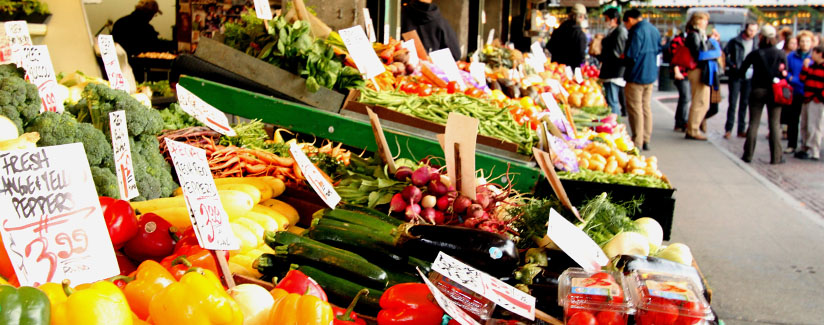
Is It OK to Eat Fruits and Veggies Sprayed with Pesticides?
Recently, the Environmental Working Group (EWG) released its annual Shopper’s Guide to Pesticides in Produce™. The guide contains what the EWG claims are the most contaminated fruits and vegetables. This has consumers asking the question “Is it safe to eat fruits and veggies sprayed with pesticides?”
The EWG’s 2015 “Dirty Dozen” report found nearly two-thirds of more than 3,000 produce samples tested by USDA in 2013 contained various pesticide residues. The report found 99 percent of apples, 98 percent of peaches and 97 percent of nectarines tested positive for at least one pesticide residue. For perspective on the report and what it means for consumers, we reached out to Dr. Carl Winter, Extension Food Toxicologist and Vice Chair of the Department of Food Science and Technology at the University of California-Davis.
What are your thoughts on these findings?
Dr. Winter:
The Environmental Working Group releases the “Dirty Dozen” list annually. Each year, their findings remain relatively unchanged and are based on methodology that is arbitrary at best. Instead of focusing on critical toxicological criteria – the amount of residue, the amount of foods we consume and the toxicity of the pesticide(s) in question – the EWG focuses on the presence of pesticide residue found on foods.
Are there limits as to how much pesticide residue can be found on fruits/veggies?
Dr. Winter:
The safety of pesticides is determined by Reference Doses (RfDs) as established by the U.S. Environmental Protection Agency. These doses represent levels of pesticide residue that are not considered to pose any health concerns for consumers. The Environmental Protection Agency will not allow the use of a pesticide unless it can determine that the use of the pesticide poses a “reasonable certainty of no harm” for consumers.
Should consumers be concerned about eating any of the fruits/veggies listed in the report? Are organic fruits and vegetables a safer alternative?
Dr. Winter:
In toxicology, “it’s the dose that makes the poison.” In other words, it’s the amount of the chemical rather than the presence or absence that determines the potential for harm. It’s important to note that the levels at which we detect these pesticides are so low that consumers have nothing to worry about. The most important thing consumers can do is to eat fruits and vegetables, period, regardless of whether they are organic or conventional.
While some studies suggest a lower likelihood of finding pesticide residue in organic foods, there can still be some detectable level of pesticides. However, as with conventional foods, the levels of pesticide residue found are extremely low and not a health concern. Consumers should not restrict consumption of certain types of produce based on the EWG report. Again, the best thing consumers can do is to eat a diet that includes lots of fruits and vegetables, whether organic or conventionally-grown.
“Vegetables Stand” by Prayitno is licensed under CC BY.


























